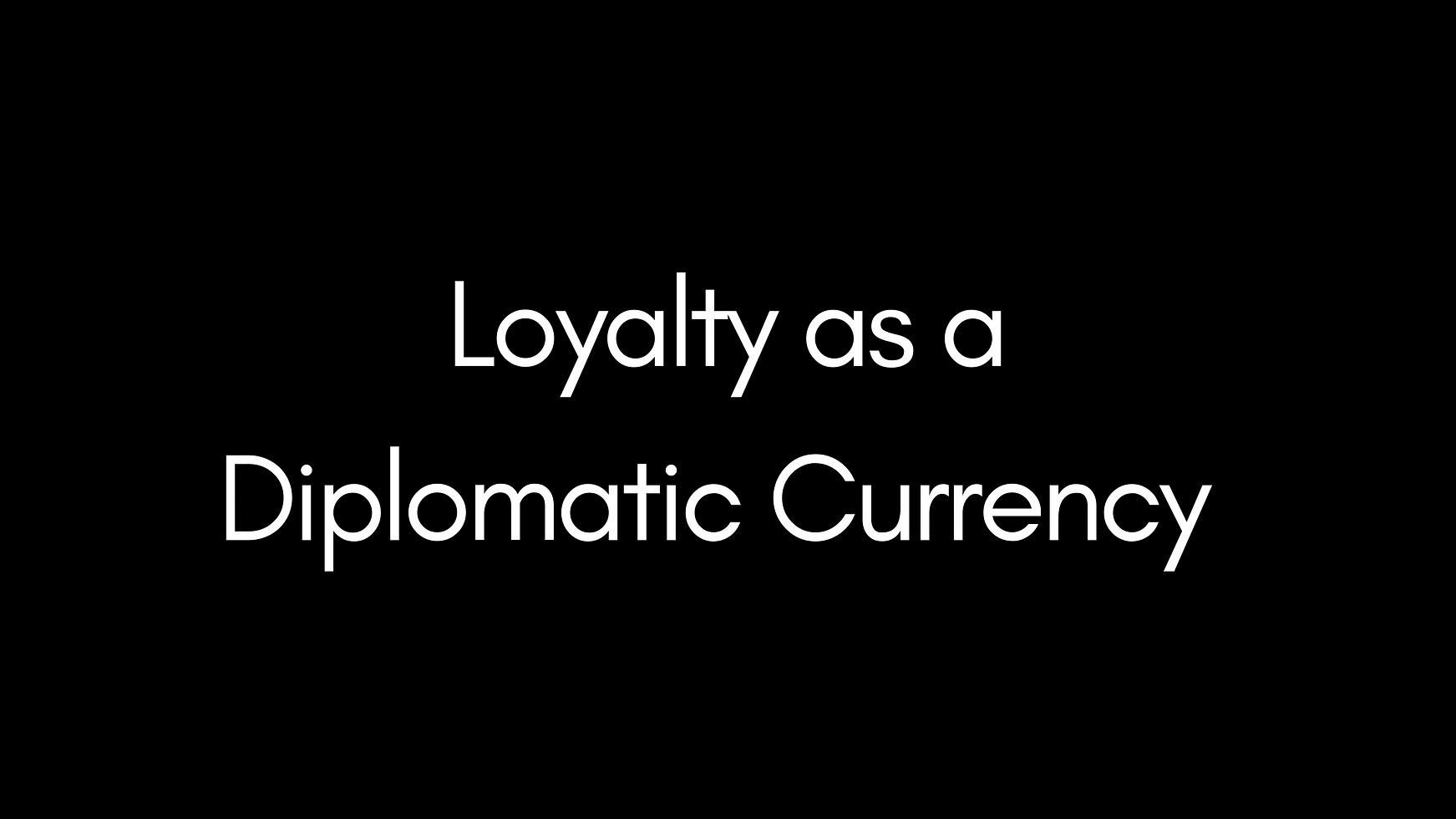
Loyalty as a Diplomatic Currency
- Laura Iancu
- Oct 8, 2024
- 3 min read
Providing value beyond the transaction
How significant do you believe loyalty is as a form of diplomatic currency?
- Extremely significant
- Important
- Neutral
- Minimal impact
At first glance, loyalty and diplomacy might seem worlds apart—one rooted in personal connections and the other in political maneuvering.
But if we take a closer look, how are these two concepts more intertwined than we might initially think?
How can loyalty, often seen as personal or corporate, reshape the way we approach global diplomacy and leadership?
Let’s explore together how combining loyalty with diplomacy not only makes sense but creates a powerful force capable of shaping outcomes in ways that go far beyond surface-level negotiations.
Together, loyalty and diplomacy can redefine how influence and trust are built on the global stage.
Loyalty is no longer just a personal value or a corporate buzzword—it’s becoming a key asset in diplomacy and global relations.
In a time when influence isn’t just measured by wealth or military strength, the relationships we nurture and the trust we earn can often have a greater impact than any deal or agreement. These bonds can shape decisions and outcomes that resonate far beyond the moment, influencing the course of nations and the people within them.
Historically, diplomacy has been driven by interests—trade agreements, military alliances, and geopolitical strategies. But with rapid globalization and the rise of interdependence between nations, organizations, and individuals, what role does loyalty play?
It is no longer just about fulfilling obligations or maintaining agreements; loyalty today is about nurturing relationships that transcend short-term gains.
For diplomats, politicians, and leaders, loyalty means committing to shared goals, respecting differences, and staying dedicated to building bridges rather than walls. It’s about earning trust through consistency, empathy, and delivering value in ways that extend beyond official documents and handshakes.
In today’s world, where alliances can shift overnight and trust is harder to earn, how can loyalty become a critical lever of power?
Consider the relationships between countries that remain strong despite changing leadership, or multinational corporations that secure lasting partnerships despite market turbulence. The strength of these connections lies in loyalty—a mutual understanding that each side will be there when it counts, providing value even when there's no immediate return.
And this loyalty is built on trust. When partners know they can rely on each other in times of need, they’re more willing to engage in long-term commitments.
Diplomatically, this means countries offering support during crises, sharing intelligence, or working together to tackle global challenges like climate change or economic instability.
In the business world, it encourages deeper collaborations, investment opportunities, and sustainable partnerships.
Loyalty, in its truest form, is not transactional.
It’s about offering value without expecting anything in return.
It’s understanding that sometimes the biggest wins come from investing in the relationship itself—whether through diplomacy, business, or personal interactions.
For instance, when a country offers humanitarian aid with no strings attached, it establishes a precedent of goodwill and moral leadership.
Similarly, when businesses invest in local communities, provide education, or champion environmental initiatives, they demonstrate a commitment that goes beyond profit margins.
How does this approach create long-term benefits?
Acts of loyalty and value-based actions often lead to stronger alliances, more resilient partnerships, and enhanced reputations. While the payoff may take time, the value created far outweighs the initial investment.
Loyalty as a Long-Term Strategy
As leaders in politics, business, and society look to the future, how can they harness the role of loyalty as a diplomatic currency?
Whether navigating complex geopolitical tensions or steering organizations through crises, those who invest in loyalty—who provide value beyond transactions—will find themselves at the center of lasting, impactful relationships.
The most influential actors on the global stage understand that loyalty, once earned and nurtured, is an invaluable asset. It transcends contracts, borders, and politics.
In the end, loyalty doesn’t just bind people, businesses, or nations together—it ensures that the value created in these relationships far surpasses any single deal or negotiation.
In a world that often rewards short-term gains and quick wins, how can loyalty become a powerful differentiator?
Loyalty builds unshakable foundations, setting the stage for deeper collaborations and lasting legacies.
By offering value beyond the immediate exchange, leaders in both diplomacy and business can tap into loyalty as a currency that never loses its worth.
Ultimately, loyalty shapes a future built on trust, mutual respect, and long-lasting connections.
What will you invest in today that will ensure lasting, meaningful relationships tomorrow?


Comments